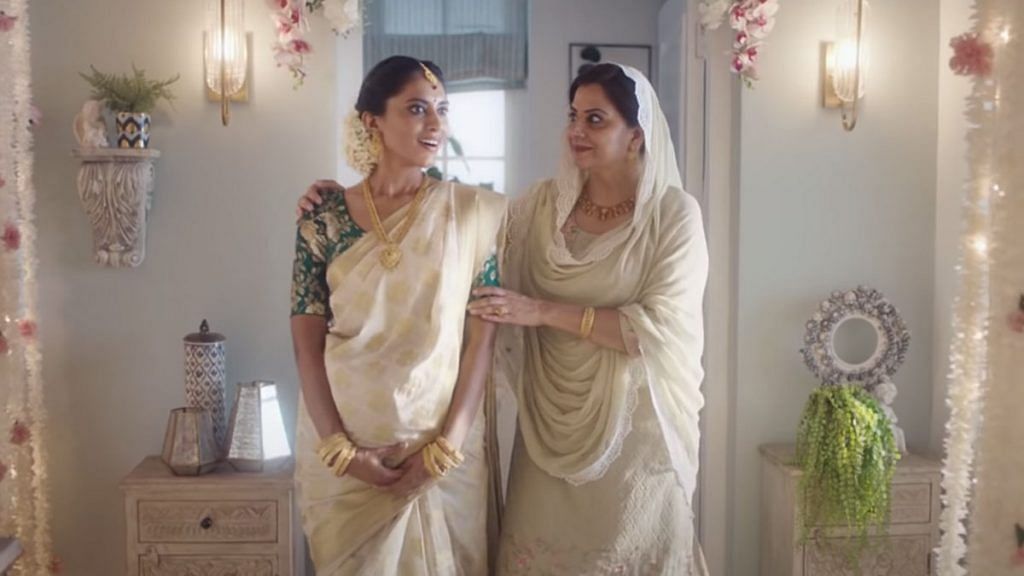It’s Friday, 7.21 am, and I wake up to the sound of my grandmother singing a devotional song as part of her rituals for Navratri. For nine days, a unique sweet dish is prepared as part of tradition, and I’m motivated to shake off my slumber once I start imagining my favourite homemade gulab jamun.
I check my phone for texts received overnight and slowly walk towards the window, for some light and fresh air. I slide open the window to witness a slightly breezy morning, with noise from vehicles of early commuters, the loud instructions from a fitness coach who takes classes in my apartment complex, and chauffeurs gossiping while cleaning cars.
However, over all this noise, I hear the overarching, intonated shout “Allah” from a mosque not too far away from where I live. The air around me is filled with people practising different faiths, and it is a beautiful feeling to know that I am in the middle of a progressive society, which was founded on strong constitutional values that allowed people to live together regardless of their differences.
However, I sip my morning tea and scroll through Twitter to read about a Tanishq advertisement being boycotted for showing an inter-faith marriage. I open WhatsApp to read a forwarded message that blames a Muslim congregation for the early spread of coronavirus in India and pick up the newspaper to read about the state intervening in marriage to curb “love jihad”.
What is happening? Why is it that what I hear in the air around me is not in line with the ground realities of polarisation, spread by religious fanatics?
Constant spread of misinformation
Every day we see information proliferated online, which is specifically aimed at emphasising the differences between a Hindu and a Muslim.
Generalising the standard understanding of a Hindu and a Muslim, we are pushed to start viewing the minorities as the “Other” — who invaded our country and subjected Hindus to wide-ranging oppression at the time. This narrative has risen through the ranks, and become the weapon of Right-wing radical organisations in India to mobilise the majoritarian Hindu crowd.
This is a known trend to many who have been conscious about the information that is being fed to them, but many have fallen prey to these narratives that seek to divide for political purposes. This is a large-scale operation that started at the top where power resides, but is now invading our private spaces in the form of WhatsApp forwards.
How do we overcome this?
We push people into questioning the source and objective of their information.
The task starts at the primary level — our homes. There is a need to incorporate values that see beyond differences in religious faith and ask ourselves if the state should have a say in a choice as personal as who we choose to marry. As noted by Jyoti Punwani in The Hindu, “There has always existed a world in India beyond the imagination of fanatics, where religion is not one’s primary identity, and a Hindu can marry a Muslim without either of them changing their faith.”
However, whenever religious conversions are enforced upon any consenting adults, most of the time it is done to satisfy the conservative members of any family who are against interfaith marriage. Punwani clarifies, “Religious conversions happen even today, but far often than not, it is more a formality to please the families and not some ‘jihadi trap’ as portrayed by the radical fringe.”
In these cases, it is evident how the Hindus and Muslims who are about to be married have learnt to look beyond the differences created by the radical fringe, and have allowed love to be the strongest force that unites them.
We need to have faith in constitutional values
As a society that is proud of its democratic values and prospered for more than 70 years embracing our differences peacefully, it is important to not give in to the radical forces that seek to divide our diverse population.
Just like the many couples who have gone ahead with interfaith marriages, we must have faith in the constitutional values instilled in us, and not allow the growing misinformation campaigns to draw lines between those practicing different faiths.
We must be free to live, free to love and free to marry whoever we choose with consent, and that is the India we have grown up in.
We need to question why Tanishq advertisements are being banned, and why “love jihad” is being curbed as part of state policy, and find the similarities between the groups carrying out these activities. If we are critical enough to do this, we are safe enough to continue living peacefully in a society we have all inherited.
Rohan Pai is a student of Ashoka University, Sonipat.
